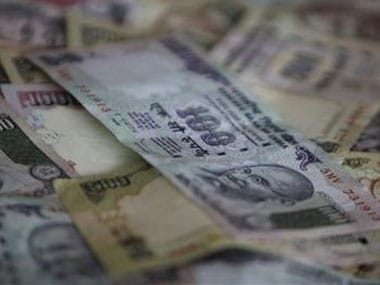Accountants use two important terms—above the line transactions and below the line transactions. The former represent all operational transactions culminating in profit or loss. And the latter include transactions dealing with how the profits are used—-for dividend, for transfer for an earmarked reserve, for transfer to general reserve etc. Evidently, the first is more important because to think otherwise would amount to putting the cart before the horse. [caption id=“attachment_2705006” align=“alignleft” width=“380”]
 Reuters[/caption] Yet, the government has done precisely that. The department of investment and public asset management has issued guidelines to Public Sector Undertakings (PSUs) that reflect the government’s misplaced if not warped priorities—thinking about extracting financial rewards on investments in these units when many of them are facing existential crisis and suffering from perennial losses. The main guidelines on reward to investors are the following:
Reuters[/caption] Yet, the government has done precisely that. The department of investment and public asset management has issued guidelines to Public Sector Undertakings (PSUs) that reflect the government’s misplaced if not warped priorities—thinking about extracting financial rewards on investments in these units when many of them are facing existential crisis and suffering from perennial losses. The main guidelines on reward to investors are the following:
- At least 30 percent of profits or 5 percent of net worth whichever is greater must be distributed as dividend
- Shares must be bought back if the net worth is Rs 2,000 crore and cash resources are Rs 1000 crore
- Bonus shares must be issued if the reserves are overflowing i.e. 10 times the equity; and
- Stock split must be resorted to if the market price of a share or its book value is 50 times its face value
Nothing wrong in the formulas as such except that they cannot be issued as one-size-fits-all holy writs. To think that these diktats apply as much to Maha-Navratnas as to down in the dumps PSUs makes one wonder about the competence of those who thought of these guidelines. A private equity firm which invests in numerous enterprises has an eye on reasonably quick payback and thus may issue these guidelines to the entities it has invested in but the government is not in a position of a private equity firm. It should leave it to the wisdom of the board of directors of individual PSUs to take a call from time to time on the appropriateness of the course to be followed. To be sure all the above are time-tested financial rewards to shareholders but to straightjacket them is simply not done. To wit, despite the overflowing cash, a PSU may not be able to buyback its own shares due to impending investment opportunities. Likewise, it may be appropriate to issue bonus shares even before the ten times the equity norm for reserves is reached just to satisfy the restless shareholders if once again there are huge and attractive investment opportunities warranting conservation of cash. Curiously, the guidelines maintain a deafening silence on the sickening practice of the government treating every PSU as its fief so as to bail out the other like LIC being mandated to pick up shares in IPOs and FPOs of PSUs going abegging for want of investor interest. Curiously again, no guidelines have been formulated to trigger disinvestment process where feet dragging has been the norm over the years. Only the Vajpayee government went ahead with a slew of quick privatization which is a more incisive surgery on PSUs than mere disinvestments. Unlike Vajpayee, Modi has a touching faith in PSUs. In the run upto the 2014 general elections, he would often tell stories of Gujarat State Fertilizers’ revival under his watch. Privatization seems to be a strict no-no with him. It is this touching faith that seems to have weighed with the Modi government in the recent merger of Gujarat State Petroleum Corporation with the Maha-Navaratna ONGC. ONGC being a profitable company, left to itself, might not have liked to embrace a loss-making outfit thus taking a lot of sheen out of its own balance sheet. There are reports the decision was shoved down the throat of ONGC. Be that as it may. The point is at a time when there are more pressing issues relating to PSUs to be addressed some of them existential and impinging on the above the line health, it is almost childish to worry about below the line transactions. A husband must first ensure the safe delivery of a child and hence give the best healthcare to his pregnant wife than worrying about the school admission of the child yet to be born.
)